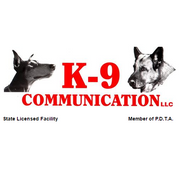
Adopting from a shelter or pet rescue center is a way to give a dog a new lease on life — but ensuring that these animals are properly trained can sometimes be a challenge. Due to timidness from the shelter and former owners and confusion about their recent move, your dog training efforts will successfully help your pooch adjust to their new home. With gentle patience and the following tips, you will get the results you and your dog are hoping for.
Top 3 Dog Training Tips for Shelter Animals
1. Set Boundaries
Even if your pet has come from a shelter, it is essential that you establish boundaries on their first day in your home. The earlier you make it clear which actions aren’t acceptable, the easier it will be to train your dog properly and prevent bad behaviors from becoming habits.
2. Be Quiet
 Rescue dogs were often shouted at or subjected to other forms of abuse in their former homes or shelters. As such, you don’t want to trigger past traumatic experiences. Don’t yell. Instead, communicate in a low, calm voice and manner that clearly expresses your love for your furry friend. When they let you, give them as much love as possible by petting them and giving them treats to gain their trust.
Rescue dogs were often shouted at or subjected to other forms of abuse in their former homes or shelters. As such, you don’t want to trigger past traumatic experiences. Don’t yell. Instead, communicate in a low, calm voice and manner that clearly expresses your love for your furry friend. When they let you, give them as much love as possible by petting them and giving them treats to gain their trust.
3. Use Crate Training
Similar to how you would respond to a new puppy, it’s often best to assume that a rescue pet has never undergone dog training in the past. Crate training is a great way to housebreak a dog and give them a space they can feel is their own. This will help ease feelings of stress or anxiety your pet might be experiencing, while also reducing the risk of unsupervised mischief or toilet accidents.
Could you use some help with your dog training routine? At K-9 Communication in Milford, CT, master dog trainer Gus Marnel uses his nearly 50 years of experience to help resolve your pet’s problems. With lifetime guarantees and a loving method of teaching, you’ll be amazed at your dog’s positive transformation. To learn more about the school’s obedience training program, visit them online or call (203) 874-7299. Visit them on Facebook and Google+ for more information.
About the Business
Have a question? Ask the experts!
Send your question

